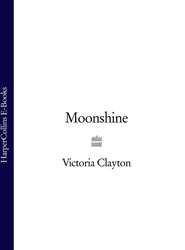По всем вопросам обращайтесь на: info@litportal.ru
(©) 2003-2024.
✖
Clouds among the Stars
Автор
Год написания книги
2018
Настройки чтения
Размер шрифта
Высота строк
Поля
Ophelia’s mad scene – Shakespeare’s Ophelia, I mean – was a favourite of Ma’s. She descended slowly, singing the mildly lewd songs that had put Sister Paulina, our English mistress, so painfully to the blush. I felt I would go mad myself if I had to listen to much more of it. As soon as Ma turned into the drawing room, still reciting, I ran up to my eldest sister’s bedroom and knocked on her door.
‘Ophelia!’
There was no answer. I turned the handle but the door was locked. I looked through the keyhole. Ophelia lay on her bed, hair trailing across the pillow, eyes closed. She looked very beautiful, framed by the primrose brocade curtains that hung from the gilded corona high on the wall. Her eiderdown was ivory silk and the carpet was a needlepoint extravaganza of flowers. A vase of pale yellow florists’ roses, probably from Crispin, stood on the table beside the bed. Ophelia had gone to much trouble to make her room pretty and comfortable, and she spent a lot of time there. The moment anything vaguely demanding or tiresome occurred she would go to bed, whatever the time of day and regardless of the inconvenience to others.
I rattled the handle. ‘Ophelia! Do talk to me! I must know what’s happening. I can’t get any sense out of Ma.’
I put my eye to the keyhole again. She stirred, but only to pull the sheets over her head.
I was standing irresolute, wondering if there was anything to be gained by going down to The Green Dragon to find Bron, when the doorbell rang. I went down to answer it. Two men stood on the doorstep, one of them in police uniform. I remembered the policeman’s helmet and my heart gave a leap of fright. The one who was dressed in a fawn mackintosh pulled a badge from his pocket and showed it to me. I could make nothing of it. My eyes read but my mind refused to take it in.
‘Miss Byng? I’m Chief Inspector Foy and this is Sergeant Tweeter. May we come in for a moment? I’d like to talk to you about your father.’ A shudder of terror did something to my knees and the streetlamp by the front door seemed to jig about, in time to the rapid beating of my heart. I felt as though years were passing as I stood staring at the buckle of his belt, hearing only a faint beeping of a car horn streets away. ‘It is Miss Byng, isn’t it?’
I stood back to allow them to come in. Ma was declaiming still, in the drawing room. Though my family frequently drove me to despair I hated people to be critical of them. Probably these custodians of civic order would be puzzled by, perhaps even contemptuous of, my mother’s response to a crisis. So I showed them into Pa’s library.
We stood about awkwardly while I tried to recover my wits. I had a pain in my midriff as though I had been winded. I tried to smile but my lips stuck to my teeth. The mackintoshed man – I had already forgotten his name – pulled up one of the faux bamboo chairs that stood either side of the secretaire and tucked it behind my knees. I sank on to it. He took the other one for himself.
The uniformed sergeant perched on the end of the chaise longue where my father was accustomed to lie with closed eyes when he was trying to ‘get into character’. The sergeant was a big man whose thighs strained at the seams of his trousers. He had a pitted nose, full red cheeks and tight black curls. He looked incongruous against the rich curtains made from the purple sails of Cleopatra’s barge held back in elegant loops by gilded rams’ heads. My stomach chose that moment to rumble with hunger. I smiled, then put my hand over my mouth because I was embarrassed to be smiling at such a time, and felt the bracing sting of the cut on my face.
The plainclothes man had very regular features and neat brown hair brushed straight back from his face. He had a cleft in his chin like Cary Grant. I saw his eyes travel round the room and pause at the skull, which was part of a tablescape composed by my mother called Obsequy. As well as the skull there was a graceful draping of white linen representing a shroud, an hour-glass and a lock of David Garrick’s hair. Glass lustres hanging from the table’s edge suggested tears. It had been there for some time and there was plenty of dust.
‘It’s only a stage prop. The skull, I mean.’ I was afraid he might be drawing sinister conclusions. ‘Yorick. You know, Hamlet.’ The inspector’s eyes travelled to a dagger that lay on the table in front of him. ‘That’s from Macbeth. It’s got a retractable blade. It couldn’t hurt anyone.’ My stomach made extravagant hollow noises, which we all pretended we could not hear.
I followed his glance to a bowl of apples on the table. Among them was a core, which had turned brown. My father must have eaten it before leaving for the theatre that morning. There was a poignancy in this that made my chest ache.
‘Now, Miss Byng. Would you mind telling me your first name?’
‘Yes. I mean, no. Harriet.’ I heard the scratching of the sergeant’s pencil.
‘And the other members of the household – could I have their names, please?’
‘Ophelia, Portia, Cordelia and Oberon. And my mother, Clarissa, and Maria-Alba.’
The inspector lifted a pair of tidy eyebrows. ‘A relation?’
‘Our housekeeper – more of a friend, really.’
The sergeant’s pencil paused. ‘Half a mo, sir. Is that O-f-e-e-l-y-a?’
The inspector spelled Ophelia for him.
‘And would it be P-o-r-s-c-h-e, sir?’
I looked down at my lap to suppress a shocking desire to laugh. I was startled by the grubbiness of my hands and fingernails. Dried blood from the splinter mingled with the dirt. The inspector was examining the room when I looked up again. I tried to see, with his eyes, the automaton of Harlequin dancing with Columbine, the copy of the Reynolds portrait of Mrs Siddons, the porphyry urn containing the ashes of a Chinese emperor’s favourite ape. There was a decoupage screen of Edwardian bathing beauties peeping through foliage, over which hung a petticoat and a pair of stays supposed to have belonged to Fanny Kemble. On the marquetry bombé chest lay Othello’s scimitar and hanging above it, like a hunting trophy, an ass’s head with a wreath of roses round its ears from A Midsummer Night’s Dream.
‘This is a very attractive room. Someone has a flair for interior decoration. Your mother?’
I was grateful for this praise. For the first time I had noticed that the library was not altogether clean, that one end of the curtain had slipped from its pole and that there was a damp stain on the ceiling. The veneer was missing in several places on the bombé chest, one of the ass’s eyes had fallen out and the chaise longue had a depressed circle covered with fur at one end where Mark Antony had made a nest. Now things seemed to glide back into soft focus and look charmingly original again.
‘Yes. She used to be an actress. But I think she likes decorating better.’
The sergeant’s pencil continued to scratch, recording these pleasantries for posterity.
‘I once saw your father play Coriolanus,’ the inspector went on. His voice was deep and agreeably fruity. ‘Must have been twenty years ago, when I was an undergraduate. He held the audience in his hand. You saw it from his point of view, how he was cut to the heart by the ingratitude of the proletariat. You felt they were ill-mannered, boorish, unreasonable. And yet, as Plutarch says, Coriolanus was a man of mistaken passion and self-will. An ill-educated prince, unfit to govern. Your father presented the crux with every line. It was a wonderful performance.’
‘Thank you. Thank you very much,’ I said with what I immediately felt to be excessive warmth. I wondered if an interest in literature was usual in a policeman.
The inspector smiled as though we were making polite conversation over teacups and sandwiches. He was really rather good-looking, with twinkling, sympathetic eyes. I liked the way the tips of his ears bent outwards a little.
‘Mind if I smoke my pipe?’ I shook my head. He took out the pipe and a leather pouch and began to stuff shreds into the bowl. Then he struck a match and applied it to the tobacco between puffs. A sweetish smell floated towards me. The process was strangely enthralling. I stared at the little curls of smoke. ‘You know, don’t you, Miss Byng, that your father has been placed under arrest?’
My temperature seemed to shoot up until my ears were practically in flames while my face grew cold with sudden perspiration. Until that moment I had not believed it.
‘Why – when …?’ I could not finish the sentence.
‘The police were called to the Phoebus Theatre this morning. Sir Basil Wintergreen was found lying on the stage with a fractured skull.’
‘Sir B-Basil Wintergreen? Is he …?’
‘I’m afraid so.’
I wanted to groan. I may even have done so. My father was currently a member of the newly formed Hubert Hat Shakespeare Company. They were to open with King Lear in two weeks. Sir Basil Wintergreen was Lear and Pa was the Duke of Gloucester. Pa had told us many times that the casting was a triumph of mediocrity. Apparently Sir Basil, since his knighthood the previous year, could not get the self-satisfaction out of his voice, however sad, mad or angry he was supposed to be. His Lear sounded like a bank manager delivering an after-dinner speech to a Masonic Lodge. He had grown so fat he could barely do more than fling out an arm or waggle his head. Soon, according to Pa, Sir Basil would have to be brought on and off stage in a cart. With his eyes dwindling to sly gleams in his swollen cheeks, he could express no nobler feeling than the comic posturing of Falstaff or Sir Toby Belch.
The lifelong rivalry between Pa and Sir Basil had been both a spur and a scourge. For many years Pa had been satirical at Basil’s expense, deriding his eagerness to court impresarios, directors, critics and anyone who could help him rise. My father had insisted, in a proud-spirited sort of way, that audiences were the proper arbiters of genius. It had been an unpleasant shock when the laurel crown had been placed on Basil’s receding brow. It was not the knighthood Pa resented but the immediate clamour for Basil’s presence on every stage that stung him. My father’s insults became less jocular and more venomous. It would be true to say that he was in a fair way to hating Basil.
‘This has been a terrible shock for you.’ The inspector’s manner was that of a story-book uncle, genial, reassuring, safe. Probably the pipe and Burberry helped. ‘I’m afraid there are one or two questions I must ask. Your mother – is she at home?’
‘I – she’s in the drawing room. I’m not sure whether … She suffers from, um, neurasthenia.’
I did not know what this was exactly, only that my mother complained of it. The sergeant’s pencil paused and I heard him give a cluck of distress.
‘You needn’t write that down, Tweeter.’ Inspector Foy nodded and hummed thoughtfully to himself. ‘Are you the eldest, Miss Byng?’
‘No. My brother – we call him Bron – is twenty-six and Ophelia’s twenty-four. I’m twenty-two.’
‘Can I have a word with them?’
‘Bron’s gone to the – out. Ophelia’s in bed.’
‘Is she ill?’
‘No. She always goes to bed when she’s upset.’
He squinted down the end of his pipe and hummed some more. ‘Pom – pom – pom,’ up and down the scale. ‘And Portia? How old is she?’
‘She’s twenty. But she isn’t here. I don’t know where she is.’
‘I see.’ The inspector drew thoughtfully on his pipe and blew a cloud, his expression noncommittal. ‘I was hoping that someone would come back to the station with me. Your father’ll need some overnight things, and no doubt a visit from a member of the family will cheer him up. His solicitor’s been with him all day, of course. Your father’ll be moved in the morning. Probably the Shrubs.’







